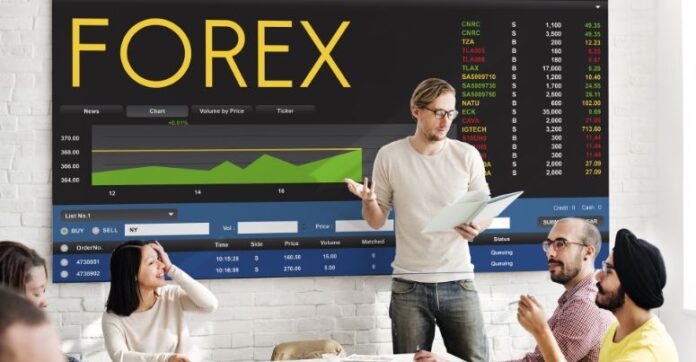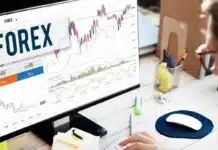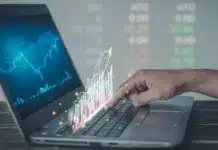
The purchasing and exchanging of currencies is the essence of forex trading. When anyone states the euro/dollar exchange rate is 1.35, it indicates one euro costs 1.35 US dollars. Singapore has established itself as an economic powerhouse on pace with titans like New York, London, and Tokyo. The country’s position as Southeast Asia’s financial capital has already been strengthened by its cutting-edge technical facilities, effective finance industry legislation, plus a significant degree of economic literacy among the general public.
Facts Related to Forex Trading in Singapore
Several facets of the market may be strange to us if we are a beginner to FX trading. Let us start by giving you the facts below about forex trading in Singapore. This covers gaining knowledge of the basics of forex trading, what you require to understand to get started, plus effective forex trading methods. Although each of the following guidelines is significant, their combined effects are powerful. One will considerably improve the chances of forex trading in Singapore successfully by having these in memory.
- Legal brokers and account openings in Singapore
One should register for a personal profile with a licensed Singapore forex broker for forex trading in Singapore. To pick a reliable and appropriate broker for your trading requirements, it is crucial to conduct thorough research and comparisons of various brokers. One must pick a brokerage company before actually opening a trading account. You must create a central depository (CDP) account before opening a trading account with a Singapore brokerage business.
Utilizing the brokerage company’s trading platform is possible with a brokerage account. All the stocks you buy from the local stock exchange (SGX) are kept in the CDP account. As the investment (you), you are the exclusive holder of the shares because you possess the CDP profile immediately. Keep in mind that even though you can have many brokerage accounts with various licensed Singapore forex brokers, you need just one CDP account.
- About Regulations and Tax in Singapore
The legal structure for forex trading in Singapore is highly established and open. The Monetary Authority of Singapore (MAS) regulates Singapore forex brokers and ensures that they adhere to stringent financial laws. The complete spectrum of currency pairings plus cryptocurrencies are approved by MAS, which permits leverage up to 1:500. Singaporeans can utilize whatever broker they wish, whether domestic or international. Singaporean merchants can select any currency pair they want, including the Singapore Dollar (SGD).
There is forex trading; tax payment is not necessary in any clear way. The top Forex brokers in Singapore wouldn’t reduce any profits for taxes. Furthermore, it should be emphasized that Singapore doesn’t impose a capital gains tax. Individuals must, nevertheless, pay taxes on their earnings. A rising residential tax is levied in Singapore, with the rate rising from 0% for income under SGD20,000 to 22% for income above SGD320,000.
- Leverage
Leverage is a typical aspect of forex trading in Singapore, enabling dealers to increase their gains (and losses). Given that it can greatly increase the danger of suffering substantial financial losses, leverage should be used cautiously and with an understanding of how it operates. Leveraged investing is used in forex. Brokers frequently offer a return on your investment of 1:100. As a result, if we invest $1,000, then we will trade up to $100,000.
Leverage has the potential to boost your earnings or aggravate your losses. For this purpose, you often hear tales of traders losing their entire trading accounts. People are using higher leverage for the volume of their accounts; one slight downward price fluctuation is sufficient to knock out all of their invested amounts.
- Education System
Choosing the best forex broker in Singapore and being aware of the hazards is essential. Still, it’s also critical to teach oneself about the forex market, create a winning trading plan, and successfully manage overall risk. This may entail structuring the portfolio, employing risk control techniques like stop-loss procedures, plus setting reasonable profit and loss goals. While trading in currencies, one can consider a wide range of alternative forex techniques. Depending on market trends and investing goals, one can use a variety of trading tactics, including scalping, day trading, swing trading, and trend trading.
- Risk Factor and your trading plan
Forex trading has a high level of risk and, therefore, can lead to substantial economic losses. Before actually engaging in trading, it’s critical to establish a clear trading plan and understanding of the dangers involved. Additionally, you must have a trading strategy to carry out your transactions with objectivity and knowledge. Before buying or selling foreign currency, creating a strategy assures that you remain focused on your investment objectives. Verify that the entire funds on that brokerage account are expendable before using real money. One shouldn’t use funds from a trading account to cover their home or one’s children’s college expenses.
Dealers should never allow themselves to believe that these other significant responsibilities are only a source of credit. Even losing money can be upsetting. Finally, make careful to remove your preconceptions and feelings from the discussion. Due to the currency market’s high level of volatility, it might be simple to become overwhelmed. But despite the numerous pricing changes, it’s crucial to maintain objectivity and impartiality.
Conclusion
Although forex trading may initially appear appealing, it differs greatly from typical stock investments. Despite its higher credit risk and more leverage, it also has reduced transaction costs and the potential to produce a profitable carry trade. It is important to remember that while forex trading in Singapore is legitimate, risks are still involved. It is crucial to conduct your own study and thoroughly weigh the potential dangers before placing any transactions, similar to any economic trading. Additionally, it is advised to utilize a licensed broker and be alert to any potential fraud or scams in the currency market. Remember that the currency market demands continual monitoring due to its tremendous volatility. As a result, monitor price changes and plan your trades properly.
FAQs
What Should You Understand Before Trading Foreign Exchange?
It’s critical to be knowledgeable about the currency pairings you trade. Various pairings have different characteristics; therefore, it’s crucial to understand the markets that support those currencies to stay informed of any significant changes that may occur in those nations.
What Do You Discover About Forex Trading Initially?
We cannot emphasize enough how crucial it is to educate oneself about the currency market. Before risking one’s own cash, spend some time learning about currency pairs and the factors that influence them. It’s a time commitment that might end up saving you a significant sum of money.
What Should You Think About Prior Trading?
Before trading, we need to consider the following: Currency pairings, leverage, Taxes and Regulations, Trading strategies, Education System, Trading plan, and Risk factors.


